In 2021 nine villages in Bali were branded as ‘Red Zones’ for the presence of rabies in the stray and community-owned dog population. In this year’s review, a total of twelve villages have been identified as having rabies in transmission in the dog population. The three villages added to the red zone list are Bitra Village, Gianyar District, Tampaksiring Village/District, and Peliatan Village, Ubud District.
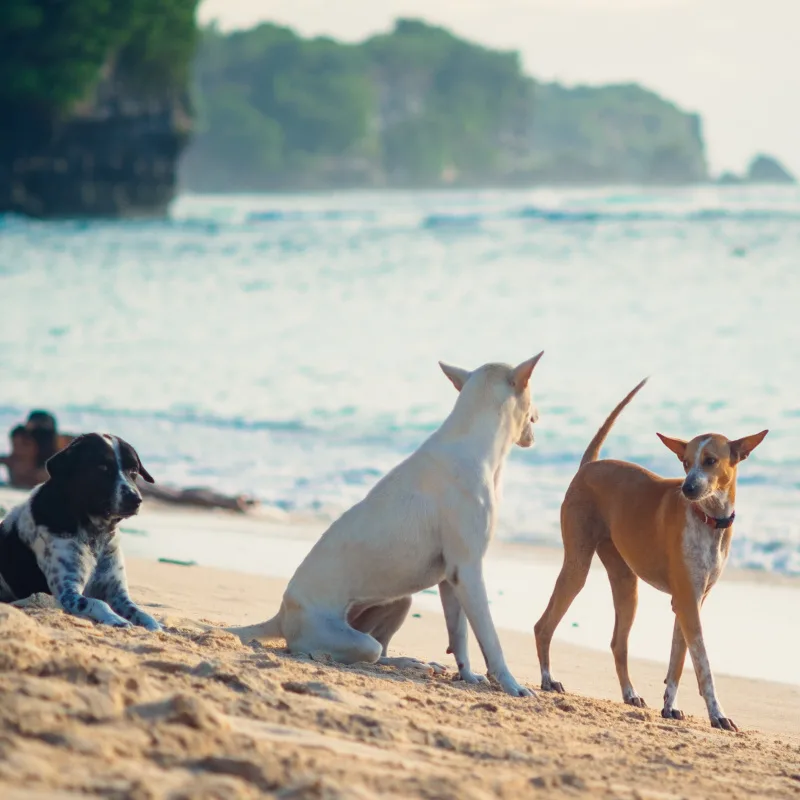
There have also been several villages added to the yellow zone list. This is a listing to describe villages that are at risk of having rabies transmission within the dog population, these include Serongga, Abianbase, Gianyar District, Singakerta Village, Sukawati District, and Manukaya Village, Tampaksiring District.
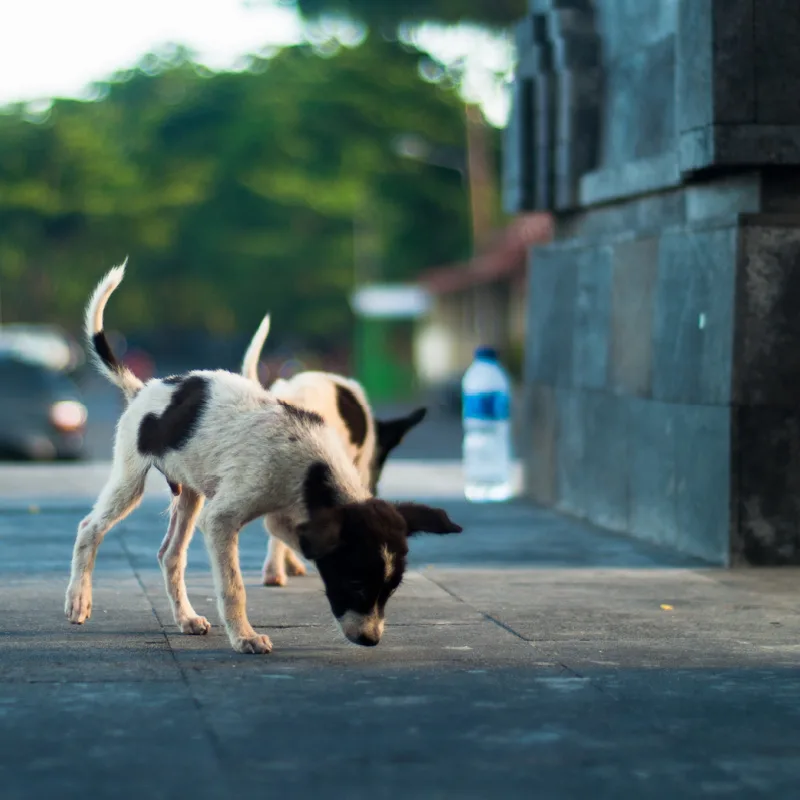
Almost all of these villages fall within the Gianyar regency of Bali. The increase in rabies rates has been linked to the increase in the dog population in the area. Significant efforts have been made by the local governments and Bali-based animal welfare not-for-profit organizations, to eliminate rabies from Bali. The only real effective method of eliminating rabies within any dog community is through vaccination and euthanization of rabid dogs.
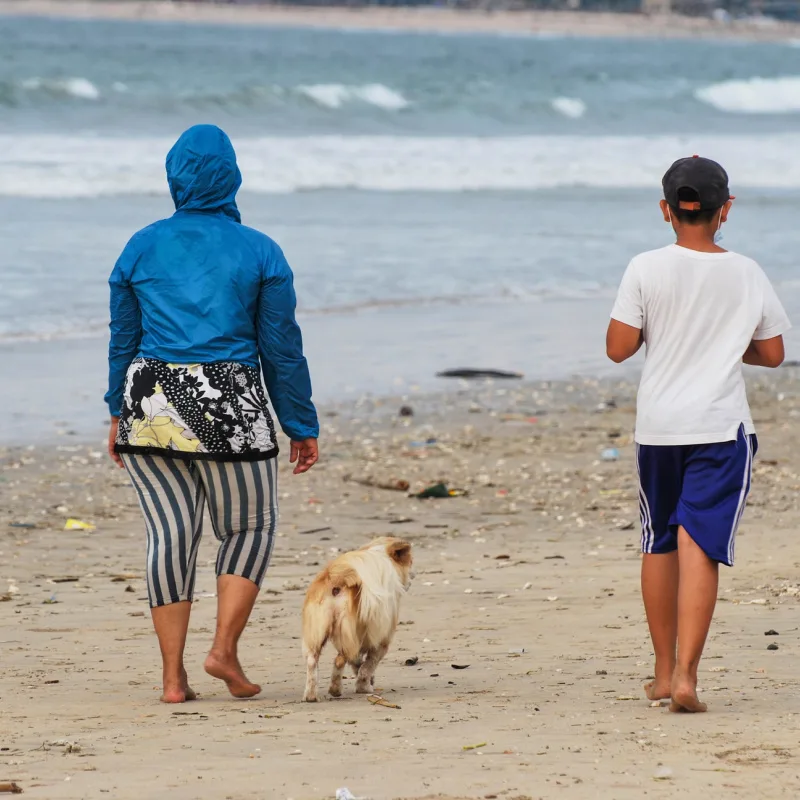
The local authorities have introduced measures making it illegal to release or abandon dogs as strays, and to encourage them to stop pet dogs in these red zone areas from mixing. The authorities only have permission to euthanize a dog who has tested positive for rabies or is showing definitive clinical symptoms. There is a general feeling that the population of stray and community-owned dogs in Bali must be bought under control, but since population control via culling is illegal, the only certain way to curb the population is through neutering programs.
Mass neutering programs are run by NGOs like Bali Animal Welfare Association (BAWA) and BARC for Dogs Bali, on a regular basis. In addition to mass vaccination programs, community education campaigns, dog rescue, and adoption programs.
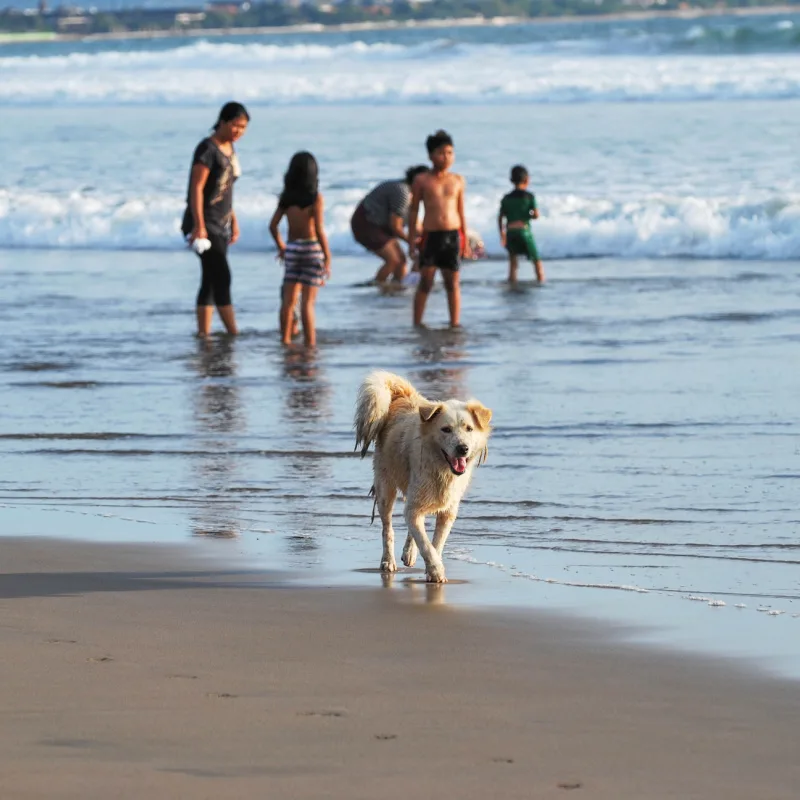
In recent weeks there has been an increase in incidences of dog poisonings throughout Bali. This is largely due to rumors of rabies cases spreading throughout villages and community members acting on fear for their safety. The issue with poisonings is that they are indiscriminate, and bait is often eaten in small amounts by healthy community dogs who then need costly medical treatment to counteract the effects of the poison that was not strong enough to kill them.
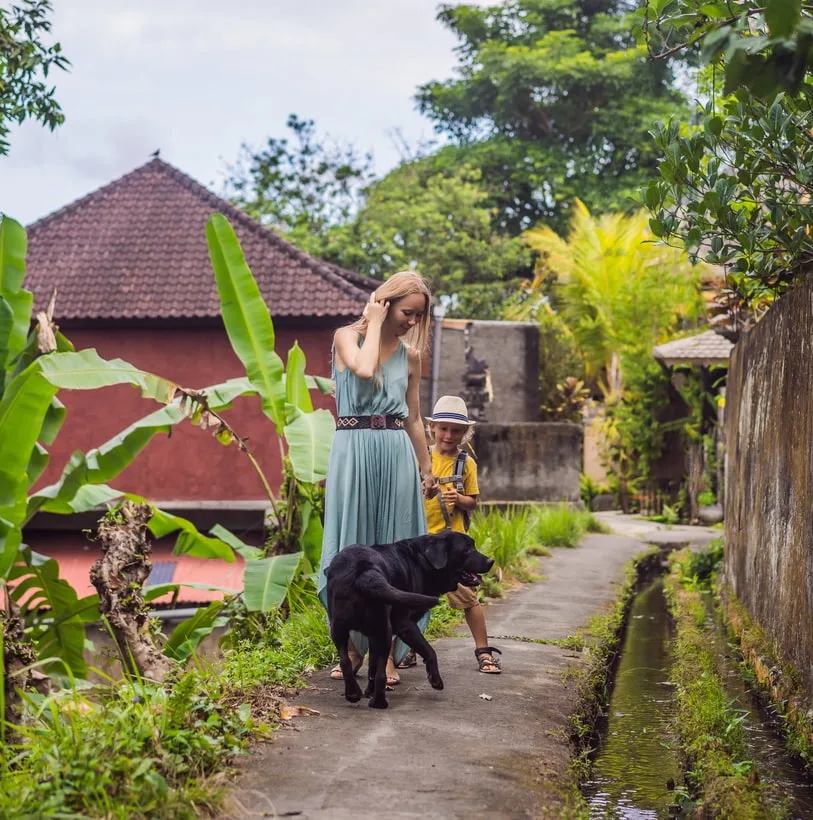
These poisonings rile animal welfare advocates across Bali and tensions between villagers and advocates rise. This is why NGOs across Bali work to run education programs to help local people identify symptoms of rabies, and the importance of neutering pets, community-owned and stray dogs.
Balinese people have a longstanding relationship with dogs, and contrary to popular belief, have largely positive feelings towards them. The indigenous Bali dog, the Kintamani and has been used as a guard dog for temples, farmland, and family compounds for thousands of years. It is thought that the poisoning events are borne from substantiated fear of catching rabies.
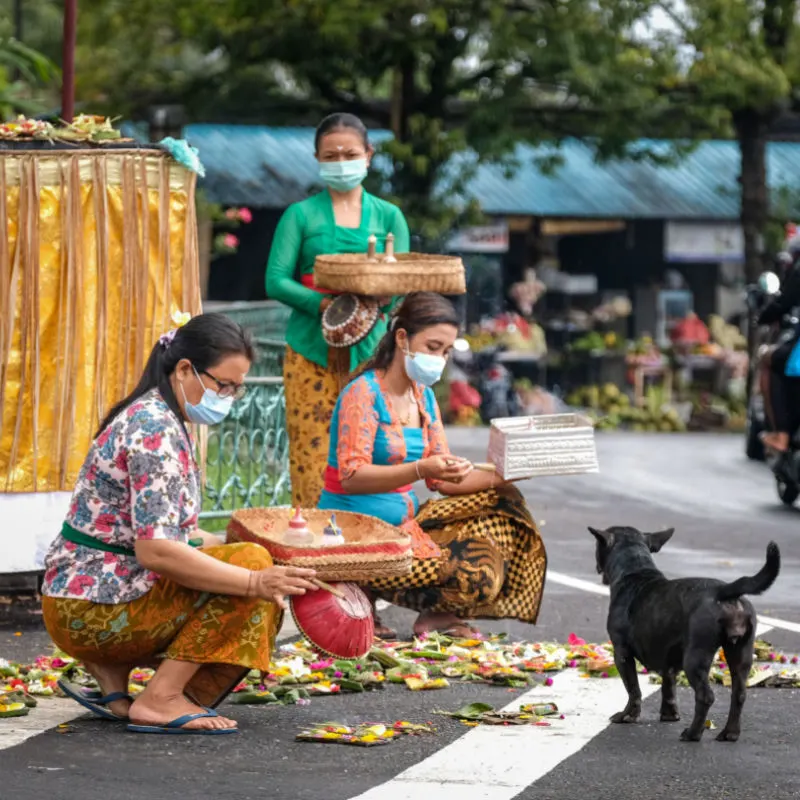
According to data from the Animal Health Sector, 11,487 dogs have been vaccinated against rabies, but figures suggest there are close to 80,000 dogs across Bali.
While the villages in the red zone are largely unvisited by tourists, visitors to Bali are reminded to be mindful when petting or interacting with stray and community-owned dogs.
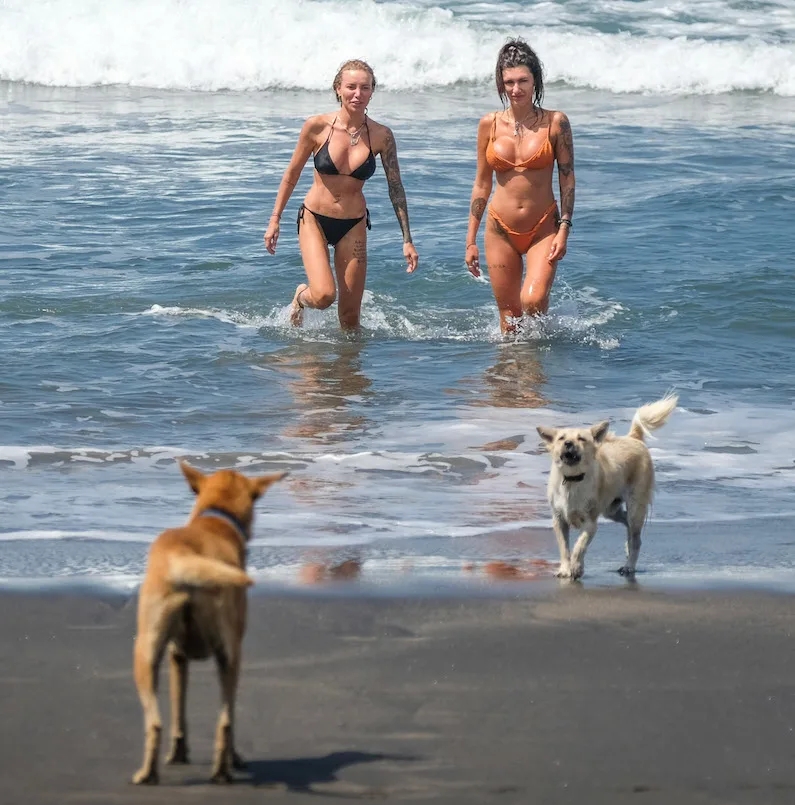
Travelers and foreign residents in Bali are reminded to check with their government’s vaccination guidelines and ensure that they are up to date. While the rabies vaccine does not prevent a person from getting rabies should they be bitten by a rabies-positive dog, it does drastically increase the efficacy of post-infection treatment. Rabies can only be passed from dogs to humans via salvia or nervous system tissue making contact with open skin, like in the event of a dog bite that breaks the skin. If you suspect you have been in contact with a dog who has rabies contact a medical professional as soon as possible.
Remove All Ads & Unlock All Articles… Sign up for The Bali Sun Premium

Plan Your Bali Holiday:
Book The Best English Speaking Drivers For Airport Transfers & Tours
Choose From Thousands of Bali Hotels, Resorts, and Hostels with Free Cancellation On Most Properties
Book Cheap Flights To Bali
Don’t Forget Travel Insurance That Covers Medical Expenses In Bali
For the latest Bali News & Debate Join our Facebook Community
SUBSCRIBE TO NEW POSTS
Enter your email address to subscribe to The Bali Sun’s latest breaking news, straight to your inbox.

Wayan Bo
Sunday 15th of May 2022
Dogs need to be feed, vaccinated and loved.
Rick
Friday 13th of May 2022
BARC is not really that involved with neutering programs. BAWA is and in addition to them Bali Pet Crusaders and Mission Pawsible do amazing work and are better worth supporting then BARC. Perhaps worth adding these two to the article!
Michelle
Friday 13th of May 2022
This is not the fault of the animals. The fault lies on the government doing NOTHING to help with the problem. The government needs to implement a program and education system here to convince locals that they should spay/nueter their animals. Most programs here are set up by expats just trying to help. They are overloaded with puppies and kittens dropped at the doorstep. Their funding is stretched to the limit! Having been here for a long time time. I support many animals in my home. I was confronted by a culling team of three men with both rabies vaccinations AND a dart gun with something to kill my dog! I had to get my neighbor to let me know they wouldn't kill my dog. If I wasn't here I'm not sure what would have happened if I wasn't here. I know that culling happens. It happens in my village. This is a people problem, not an animal problem!
Steven
Friday 13th of May 2022
It shouldn't always be left to the charities to deal with this problem. Funding is needed from the goverment and not large sums are needed. Give the contract to the charities like bawa, they will ensure a professionally run, cost effective program. Also without corruption ensuring the budget is well spent and well used. Mass Poisonings is both reckless and dangerous. Not just stray dogs, family pets, dogs and cats and other wildlife like birds, squirrels are affected. Also there are many children on the beaches, its a disaster waiting to happen. Charities have the experience and everything in place with additional support to carry out a mass sterilization, euthanization and adoption program on a large island wise scale which is needed. A large social media promotion would provide support and education across the island also.
Lingus
Friday 13th of May 2022
Get rid of them all, start at Padma Beach, how about some ground rules, you have one dog, it stays on a leash, you pick up the dogshit, and put it in a bin, if you cant, don't have a dog, just call it a fckn sate...!!! 😡😡😡😡
Steven
Sunday 15th of May 2022
@Lingus, so you think throwing poisioned food everywhere is a good thing? Agree on the point that something needs to be done, but the mass poisonings are lazy, dangerous and reckless. Btw they've wiped out all the strays dogs and many pets on my local beach.